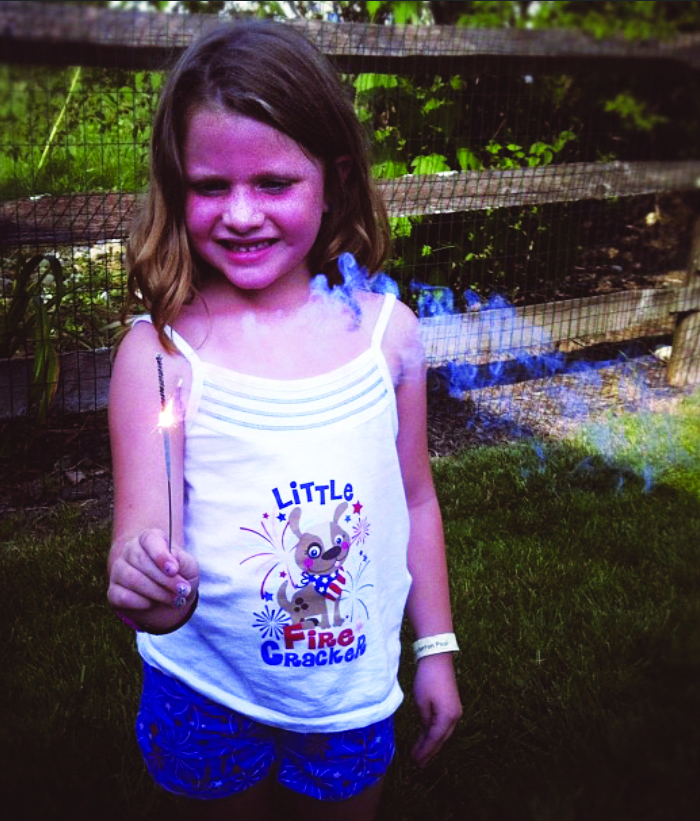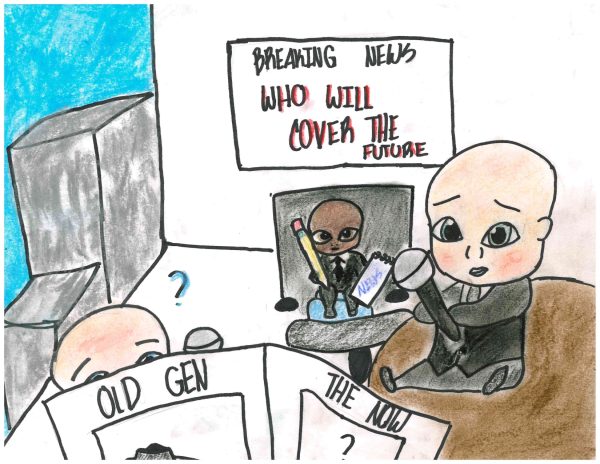Overprotective parenting does more harm than good
By overshadowing and ignoring serious discussions, parents adopting an overprotective style of parenting jeopardize their children’s future and safety. Balance of independence is vital.
Born to be wild…Lighting up a firecracker, 5-year-old Madison Stine celebrates the Fourth of July. Growing up without overbearing parents fosters independence.
Overly interjecting into a child’s life in an attempt to protect them only further detaches them from society’s problems and prevents spreading awareness about serious topics.
According to Michigan State University, overprotective parenting refers to wanting to protect children from “harm, hurt and pain, unhappiness, bad experiences and rejection, hurt feelings, failure and disappointments.”
Children should be protected, however, a recent increase in overstepping this boundary results in a lack of genuine understanding towards difficult topics.
Instilling stereotypical beliefs about these serious concepts, such as sexual assault, war, disease, trafficking, abuse, grooming and much more, plagues our society and lures children into a false assumption of security.
According to The New York Times, Ghislaine Maxwell’s appearance played a large role in her ability to groom and exploit children.
“The admiration Ms. Maxwell inspired in these girls would have made them all the more susceptible to the nefarious tactic known as “grooming” — the slow process of eroding a potential victim’s defenses, desensitizing them to increasingly inappropriate or abusive behavior,” the New York Times article said.
By failing to educate children about signs of grooming, along with other concepts, they become more vulnerable to experiencing these situations, as they fail to recognize tactics used by groomers.
Maxwell’s societal status and poise ensured that many young girls felt safe in her presence, as they were never taught differently.
“For a girl to be chosen by Ms. Maxwell, singled out by this refined woman, would have felt like a great compliment, like winning a beauty contest, like opening a portal to a world of privilege and ease,” The New York Times article said.
In general, children with overprotective parents are usually unable to cope with everyday stressors experienced throughout adulthood.
Children stuck in an entirely codependent relationship with their parents never encounter independent thinking and growth, solely relying on their parents to guide and help them through life.
And with such high standards and expectations from their beloved parents, many feel the need to lie when they fear disappointment.
According to Psychology and Counseling Associates, children have a warped sense of life when overprotective parents interject, which may cause anxiety.
“All-in-all, overprotective parenting can distort a child’s perception of threat in the world. An anxious child is less likely to perceive control over threat – or any life situation – and display more acts of avoidance,” Psychology and Counseling Associates said.
On the flip side, too much independence can stimulate unhealthy coping skills and behaviors, with no sense on how to correctly respond to problems.
Balance is the key.
Wowever, the way a child is raised does not necessarily ensure the way they will behave in the future.
Most parents just want to protect their children, which is good.
However, depriving a child of independence and awareness does not protect them.
Ignoring heavy topics does not ensure their safety.







